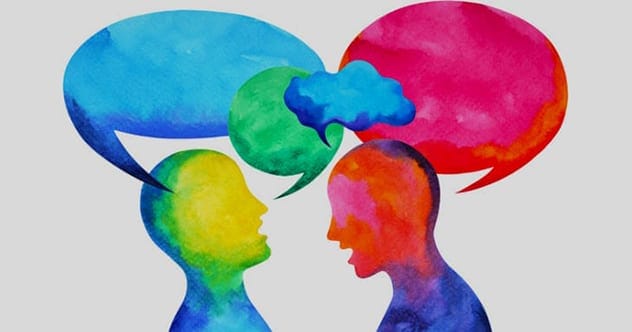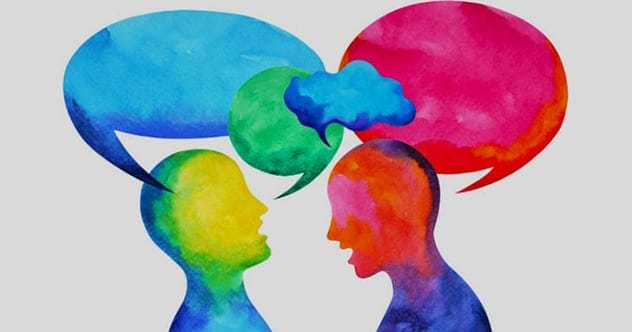Talking is more than just exchanging words. It shapes how we perceive the world, handle crises, and connect with each other. Ever wondered why authors hear their characters speak or how language can predict a relationship’s end? Let’s dive into some truly bizarre facts about talking!
10. Most People Talk Too Much

We’re wired to pick up on social cues, but many struggle with knowing when to stop talking. Studies show that nearly 70% of people feel their conversation partner talks for too long. People also overestimate how long others want to listen. Next time, pay closer attention to those subtle cues!
9. Talking To Yourself Is Healthy

That person mumbling in the corner might be onto something. A 2017 study found that talking to yourself, especially in the third person (e.g., “Why is John upset?”), can significantly reduce stress. It creates distance between you and your emotions, boosting your resilience in tough situations.
8. Small Talk: Useless and Essential
While seemingly pointless, small talk plays a crucial role in human relationships. Whether with strangers, coworkers, or family, it strengthens bonds, clarifies social roles, and maintains friendly connections. Back in the day, it helped people avoid enemies and navigate social situations, and it still does!
7. Eavesdroppers Find Eavesdropping Annoying

Ever get annoyed by someone’s loud phone conversation? Researchers found that hearing only one side of a conversation is more distracting than hearing a complete discussion. This is because our brains crave closure and struggle when they can’t make sense of incomplete information. It’s both irritating and attention-grabbing!
6. ‘Huh’ Appears To Be Universal

The sound “Huh?” is used across various cultures to indicate confusion and request clarification. This “conversation repair” mechanism is a universal phenomenon. What’s truly amazing is that so many languages use a sound almost identical to the English “Huh.”
5. Older People Share Fewer Memories

As people age, they tend to talk less about past experiences. When they do, they often provide fewer details than younger individuals. While the exact cause remains unclear, scientists believe it might be related to age-related changes in the brain.
4. Language Determines Experience With Color

Our language affects how we perceive colors. The brain interprets things based on meaning, which is influenced by culture. Some languages have few color words, while others, like Australia’s Warlpiri, describe colors using textures and sensations. How we talk shapes what we see!
3. Sleep-Talk Is Mostly Negative

Research on sleep-talk reveals that it’s often nonsensical. However, when sleep-talkers make sense, their utterances tend to be negative. They say “No” more frequently and use more aggressive language. Some believe this reflects dreams as simulations for real-life confrontations.
2. Language Predicts Break-Ups

Can language foretell a breakup? Surprisingly, yes! Studies analyzing online posts found that people start using more self-focused pronouns (I, me, mine) and fewer couple-related words (us, we, our) up to three months before a split. This shift occurs regardless of the topic being discussed.
1. Authors Hear Their Characters’ Voices

Many authors can actually “hear” their characters speak. Over 60% of writers report this phenomenon, and 15% can converse with their characters as if they were real people. Often, these characters act independently, doing and saying things the author didn’t plan. It’s a fascinating glimpse into the subconscious mind!
From universal sounds to predicting relationship outcomes, talking is full of surprises. Who knew our words could be so influential and revealing?
What’s the most surprising fact you learned? Share your thoughts in the comments below!










